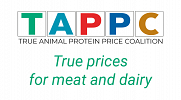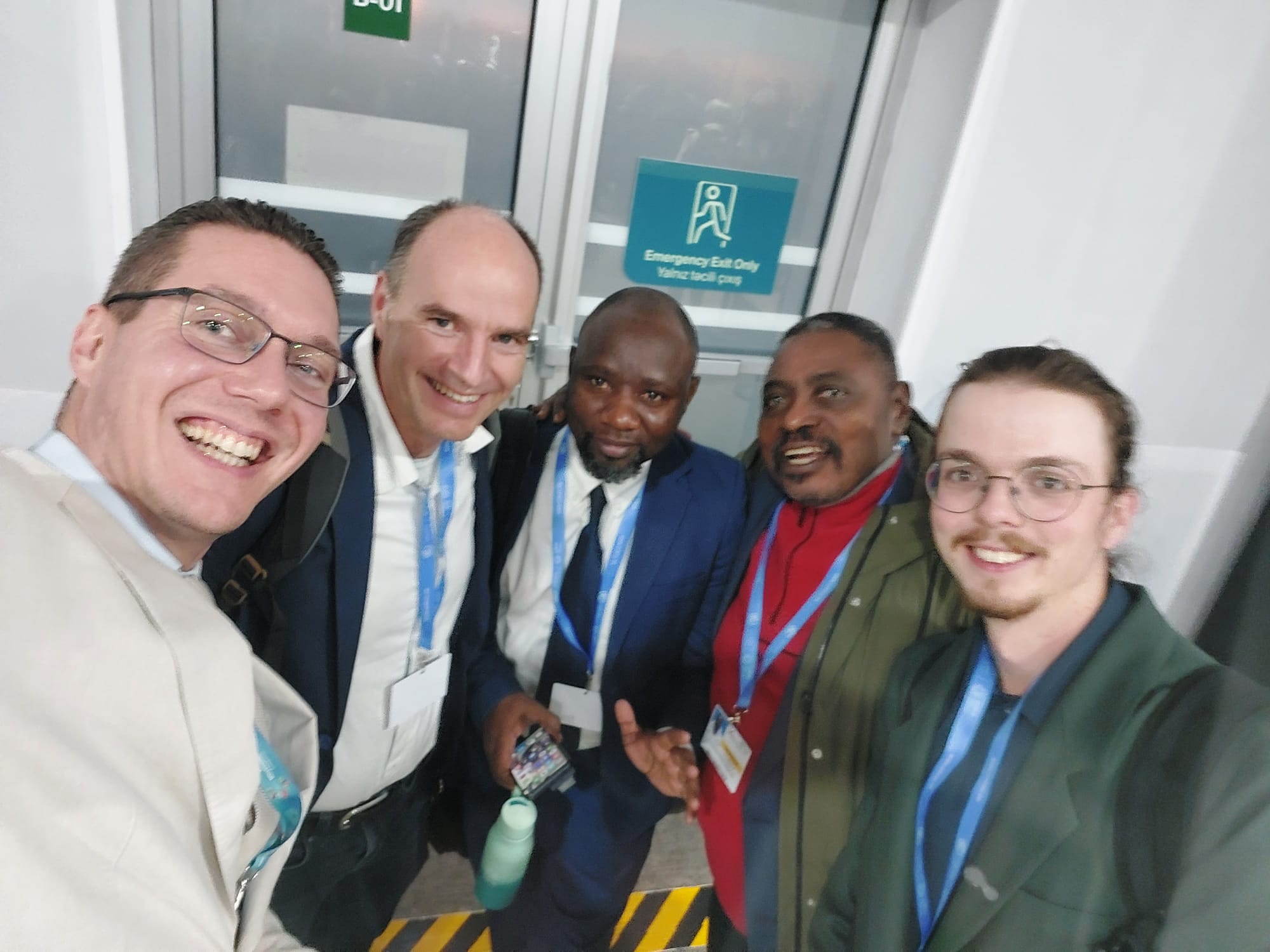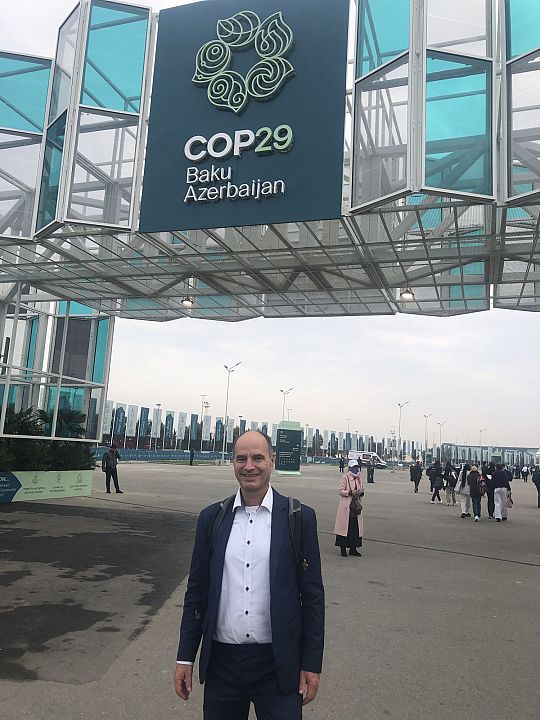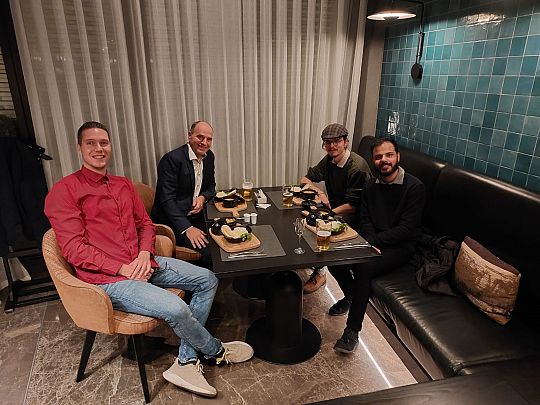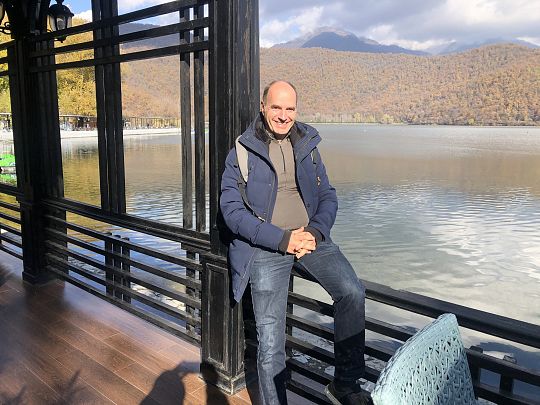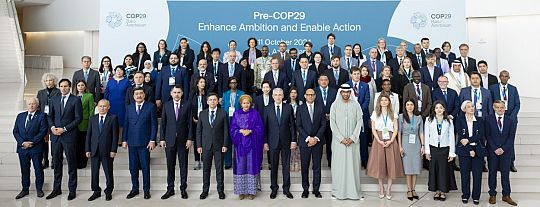COP29: a personal story by Jeroom Remmers
COP29 in Baku: a personal story by Jeroom Remmers, director of the TAPP Coalition
From 11 to 22 November 2024 I attended the COP29 conference, my fifth UN climate conference after previous conferences in Dubai, Egypt, Glasgow and Madrid. What insights did I gain and what did it mean to me as a person to be there? How did this experience strengthen my motivation to commit to the global climate goals and the specific goals of TAPP Coalition?
With growing reluctance I took the plane due to the fact that it is not possible to reach Azerbaijan by train with closed borders. The highlight of the COP29 conference for me and for TAPP Coalition was that never before had climate policy for food and agriculture been so high on the agenda. When I was in Madrid five years ago, I was more or less the only one who raised this theme at a side event. But now there were days when there were more than five events on this theme at any given time. It is evident that the climate policy for food and agriculture has gained significant attention, partly due to the press conferences and events of the TAPP Coalition at previous UN climate summits and our letters to ministers from all countries, and therefore I am very happy to have made a small contribution to this. It is very unfair that there was hardly any attention to reducing greenhouse gas emissions in agro-food sectors, whether or not through pricing, given that they cause a third of all greenhouse gasses on earth; not to mention that only three percent of climate financing goes to agriculture and food, the rest goes to energy.
What makes these massive conferences special is that some 60,000 people from all over the world come together in a bizarrely strange location, which creates a strong sense of solidarity. Wherever you live, everyone wants to contribute to solving the climate problem. The same goes for the TAPP Coalition team that was present: my direct colleague Willem Branten, two TAPP volunteers Akshath Kaimal (from India) and Tim Reysoo (Netherlands), and two employees of our African partner organization ACAI (from Congo and Gabon). They mainly had contacts with African environmental ministries.
The TAPP Coalition - ACAI COP29 team: Tim Reysoo, Jeroom Remmers, Bienvenu Ongoundou, Trinto Mugangu and Willem Branten
This year, we had three press conferences that are recorded by UNFCCC and we organised one side event together with investor network FAIRR / Jeremy Coller Foundation and Climate Civics International, chaired by Danielle Nierenberg from FoodTank USA. The first side event was about the groundbreaking FAO SOFA 2024 report on hidden foodcosts and ways how governments can reduce external climate and health costs of food consumption, e.g. by taxing meat and dairy in industrialised countries. Another report from World Bank also urged rich and middle income countries to tax meat and dairy, to enable to meet climate goals. Our first press conferences led to a lot of publicity in the USA because some influencers believed the UN would force the USA to start a meat tax.
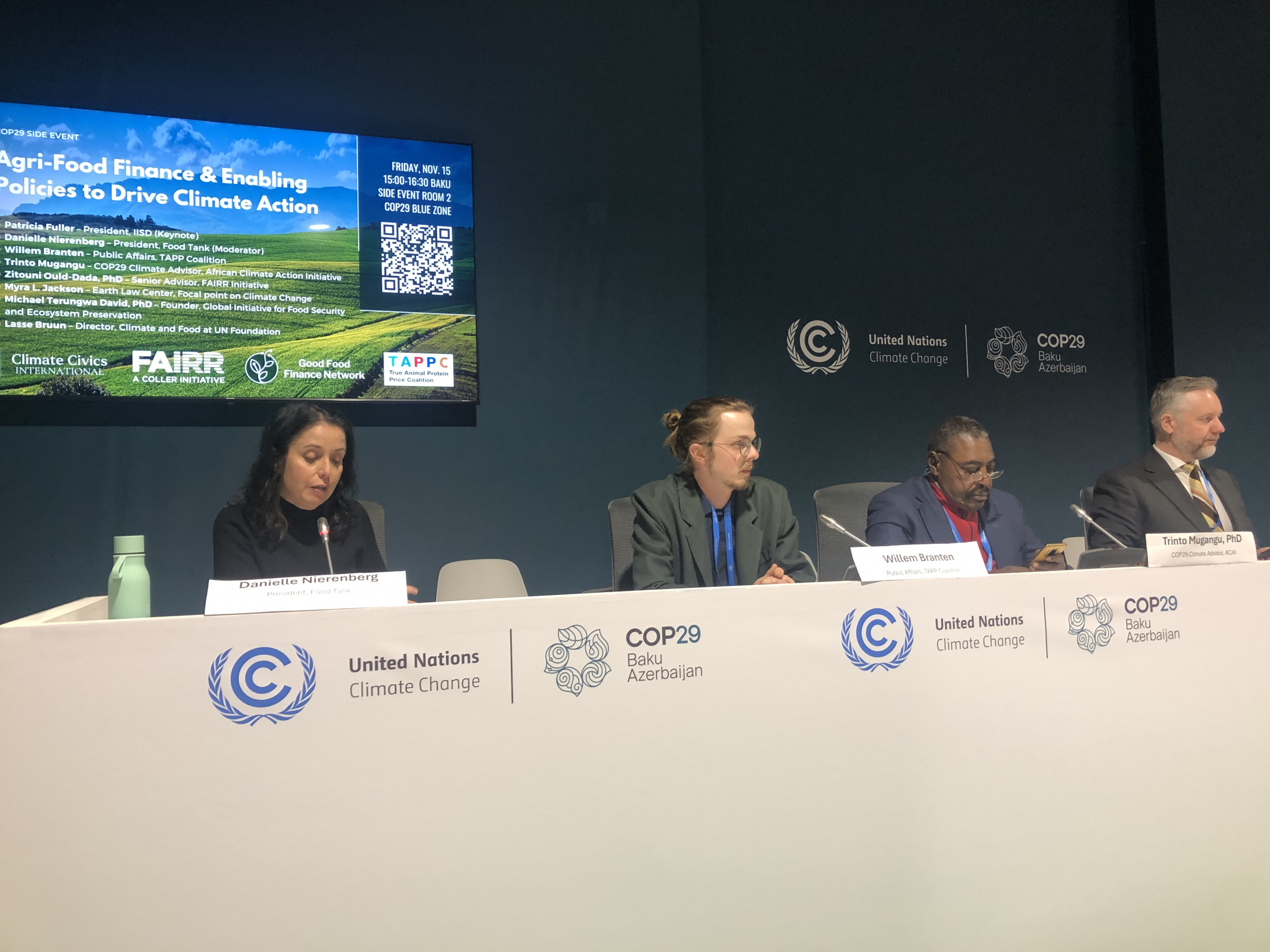
The COP29 Side event (part 1) with Danielle Nierenberg, Willem Branten, Trinto Mugangu and Lasse Bruun
Our focus during COP29 however was - in addition to the three press conferences and a side event - primarily on collecting as many signatures as possible from environmental ministers for a Declaration that we had drawn up in advance. That is why we went to as many side events, country pavilions and country offices as possible, alone or together, to talk to officials, directors and sometimes directly with ministers to sign our Declaration that had already been signed by ministers from Nigeria, Congo (DRC) and Uganda.
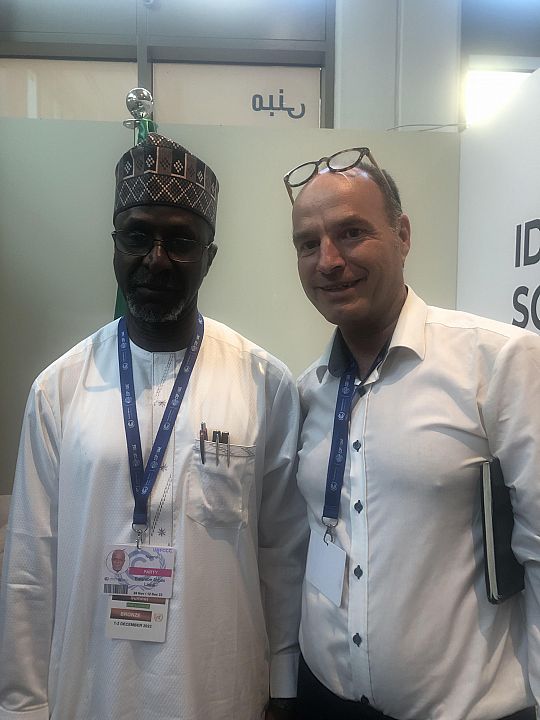
During COP28 and COP29, the Honourable Environmental Minister of Nigeria Lawal met Jeroom Remmers from TAPP Coalition. He signed the Declaration at COP28 and is leading the African coalition of nations who also signed the Declaration.
Of course, it is a kick when you manage to convince another minister or director-general to sign. Sometimes it goes very quickly. You show on your laptop what the declaration is and how you can sign online, and voila, the director signs on behalf of his country by typing in his name! But usually it goes more slowly, and the ministries and parties involved first have to coordinate internally whether it is allowed to sign.
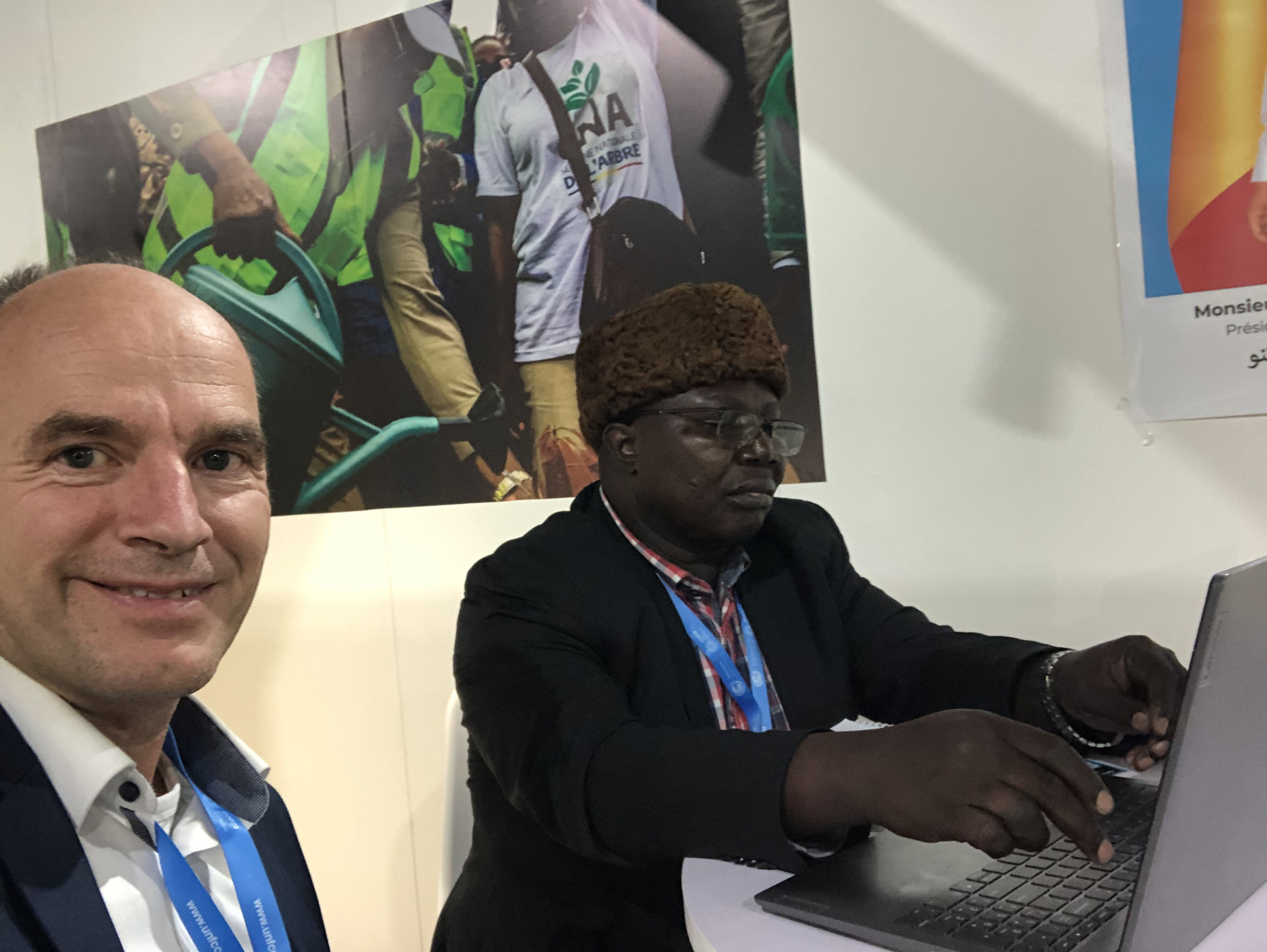
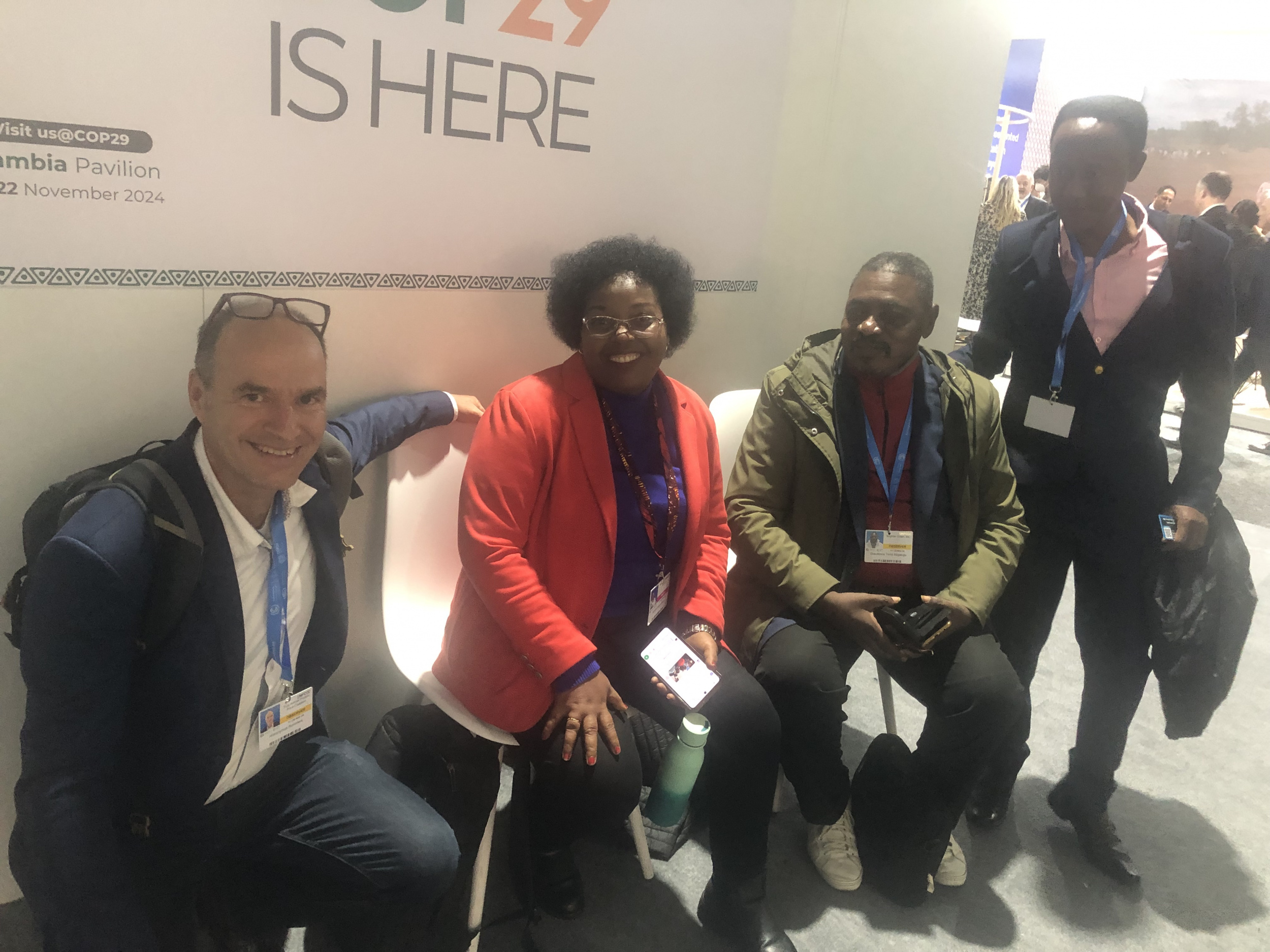
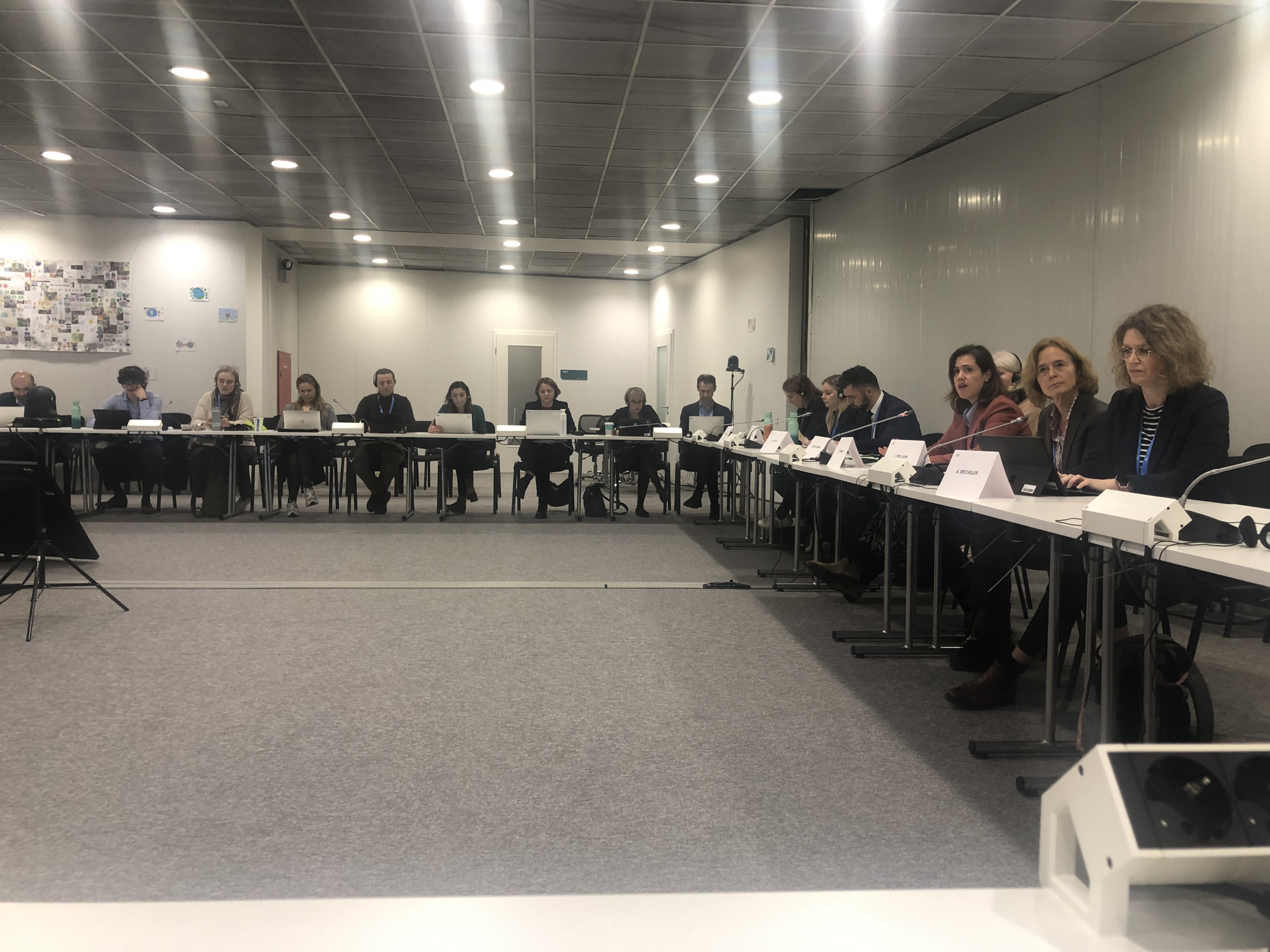
Chad is on board too! Zambia to be convinced too? The EU Parliament Delegation with CAN EU Delegation informed by TAPP
For me as a human being, COP29 means that I do what I want to do in this life: stand up for a liveable world for the many future generations after me. How is it possible that our generation is allowing pollution to increase so enormously with an after-us-the-flood attitude, literally? It has been my mission since I was 21 to convince as many politicians as possible to put this high on their agenda by implementing socially acceptable pricing policies so that the necessary change in the economy will come about 'automatically'. Because I have lived in countries in Africa, Asia and South America during my previous jobs and travels, I feel a huge connection with people who are much less fortunate than in the West. They are the ones who are most affected by the damaging effects of climate change, mainly caused by the same West. That is why I enjoy working together with people from these countries and asking ministers from these countries to express support for policies that are needed in the West and China. Climate change and the objectives of the TAPP Coalition are therefore not only a business issue for me, but also a personal urgency.
Concrete goals of TAPP Coalition for COP29
The concrete goals that I presented for the TAPP Coalition during COP29 were to draw attention to the fact that now also the UN Organization for Agriculture (FAO) and the World Bank are asking highly developed countries to introduce levies on meat and dairy, because otherwise the climate goals cannot be achieved. That is also why we had drawn up a Declaration to introduce these kinds of levies in OECD countries and China, whereby at least 20 percent of the levy revenue should be used for the Loss and Damage Fund. This is a fund yet to be formed into which highly developed countries are expected to pay 1300 billion dollars per year by 2035 in order to compensate and repair the damage they cause to other countries with their greenhouse gas emissions. However, those very same countries do not want to pay more than 300 billion dollars per year at the moment (COP29 Agreement). If all OECD countries and China were to introduce a levy of 10 dollar cents per 100 grams of meat, it would already be possible to raise 186 billion dollars per year to compensate for the climate damage caused by, among other things, overconsumption of meat in rich countries. In addition, we wanted to draw attention to the inclusion of a sentence in the final declaration of COP29 or COP30 next year in Brazil about ' transitioning away from animal protein overconsumption ', just like the historic sentence from the COP28 declaration from oil country Dubai about ' transitioning away from fossil fuels '. Our goal was for at least 12 countries to sign this. And fortunately, this goal was achieved as in the end we managed to get 27 countries! This was mainly because an organization signed on behalf of 21 Pacific island states. Their primary reason was that sea level rise and increasingly strong hurricanes threaten their existence.
A nice detail is how that signature came about. Months before COP29 we had approached the ministers and umbrella organizations of these small island states to sign. During the first week of COP29 we had already spoken to some representatives from those countries, including some agricultural negotiators. If there was a room with 200 agricultural negotiators, who were discussing rather silly things like setting up a website about agricultural climate policy, I made sure I was there at the end of the meeting, to speak to as many negotiators as possible and hand over my business card with a QR code to the Declaration, and the request to ask their minister to sign it. On the last Saturday evening, November 16 at 10 pm I thought: I'm going to do another round of all the Pavilions, who knows I might meet someone who can sign the Declaration. At the Pacific Pavillion I saw a group of men sitting around a table who were drinking a mysterious brown juice one by one, which was put in half a coconut and went around the circle. After swallowing the juice, there was a soft clap of confirmation by other men. I asked: “Any Minister present here?”. And yes, I was invited to join them and was allowed to drink the traditional party drink, an earthy and spicy substance. After a week with an average of 4 hours of sleep per night, I have to say that it refreshed me. Two heavy men next to me turned out to be the Environment Minister of Fiji and the director of SPREP, which represents 21 small island states in the Pacific Ocean. After a few sentences they had heard enough, they would sign. I grabbed my laptop and a little later it was arranged.
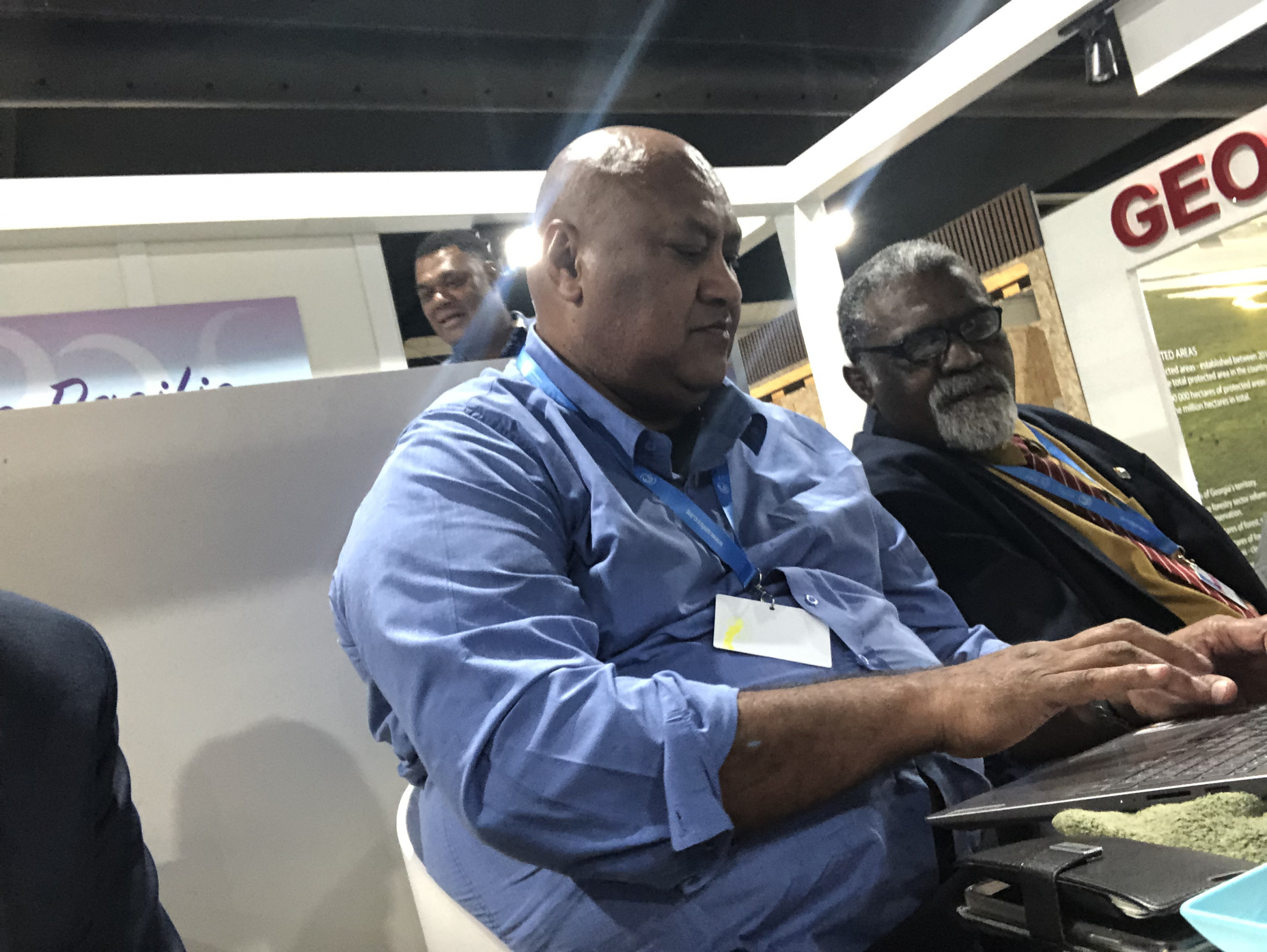
The Director of SPREP, representing 21 SIDS in the Pacific and the Environmental minister of Fiji signing the Declaration
Finally, I would like to share my experience about the growing friendship with our African friends Bienvenu Ongoundou and Dr. Trinto Mugangu from Africa Climate Action Initiative. We spent two weeks together. Thanks in part to a donation from a charity, I was able to invite them to join TAPP Coalition at COP29, specifically to raise support for our Declaration from more African countries. They have been working on this for months with limited resources. It was nice and pleasant to be together for a long time, to dine and to go out on a free Sunday to the Caucasus Mountains to explore the country. I will never forget the humor of Dr. Trinto, a retired climate diplomat from Congo DRC with years of experience with UN climate conferences and the passion of Bienvenu. In passing, my French has also improved a lot.
I hope that with this report and a glimpse into my personal involvement, I can inspire others to commit themselves to the changes that are needed!
More information about the Declaration : 27 Countries sign a COP29 Declaration on GHG-emission pricing of food - True Animal Protein Price Coalition and : Coalition of 27 Countries and 100+ NGOs demand Just Climate Finance - True Animal Protein Price Coalition
Want to watch the three UN-recorded TAPP Coalition press conferences yourself? TAPP Coalition activities at COP29 UN Climate Conference - True Animal Protein Price Coalition .
Other relevant news: https://tappcoalition.eu/nieuws
Become a donor to TAPP Coalition: https://tappcoalition.eu/donate
Read or receive the International Newsletters: https://tappcoalition.eu/newsletter
Follow the social media of TAPP Coalition? See linked in, facebook , insta, twitter or youtube ! at https://tappcoalition.eu
Jeroom Remmers,
Director of TAPP Coalition
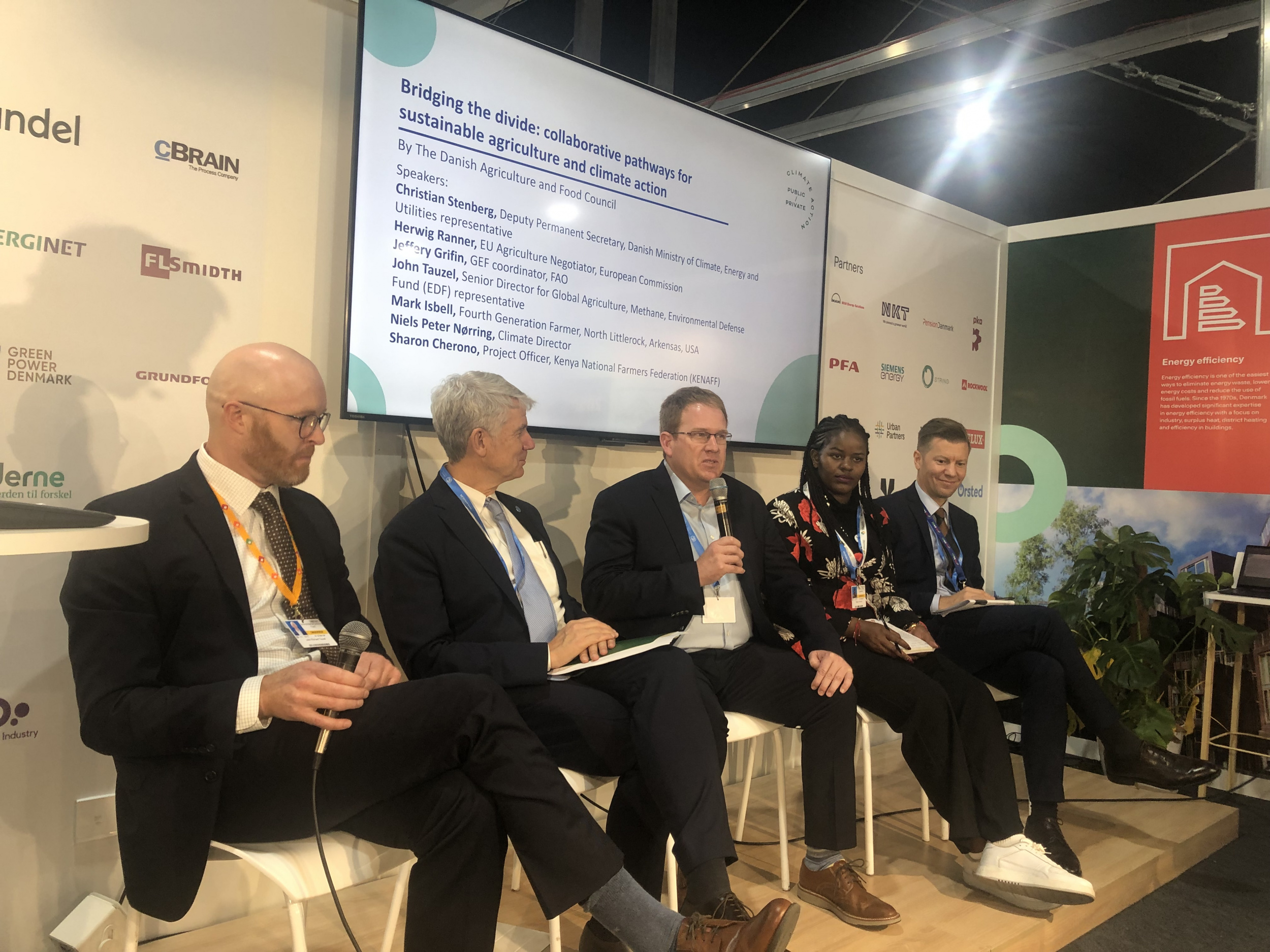
The Danes have news: a GHG emission tax on livestock will start by 2030
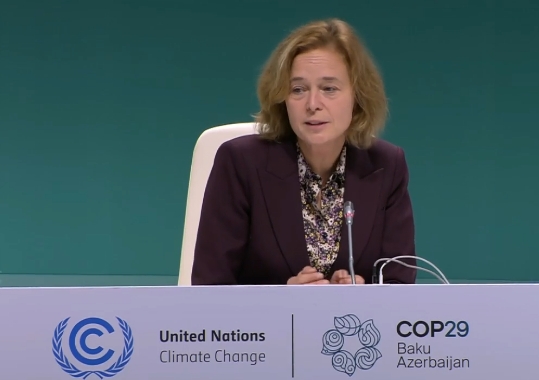
Ingeborg ter Laak, EU member of Parliament from EPP, in a press conference 21 november organised by TAPP Coalition on Agri-ETS and the Danish livestock CO2 eq tax, examples for OECD countries and China?
